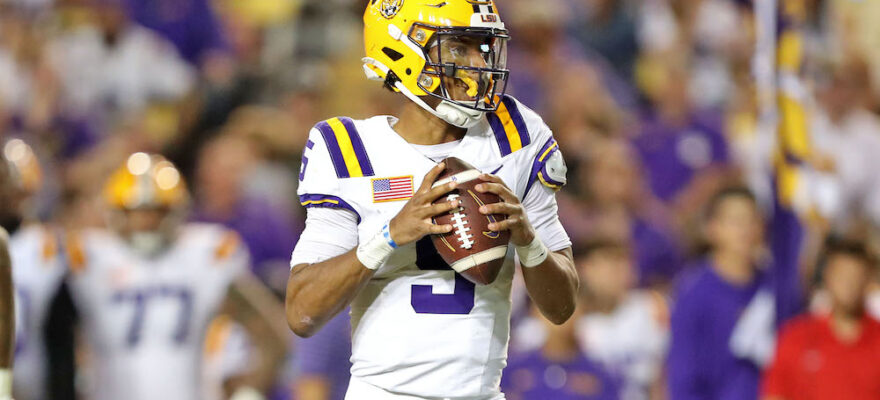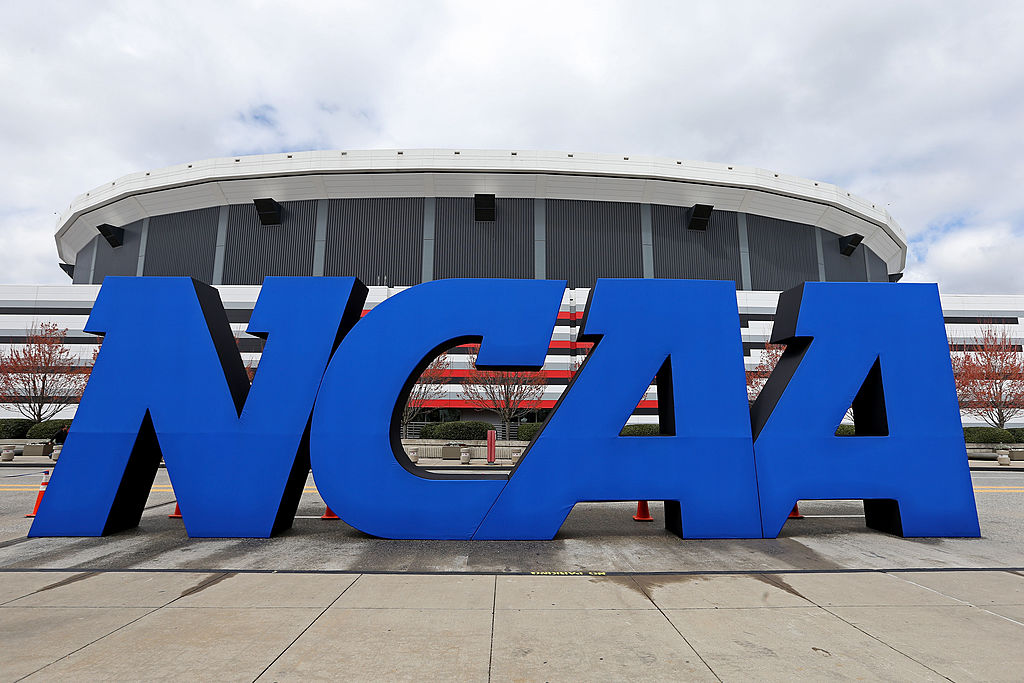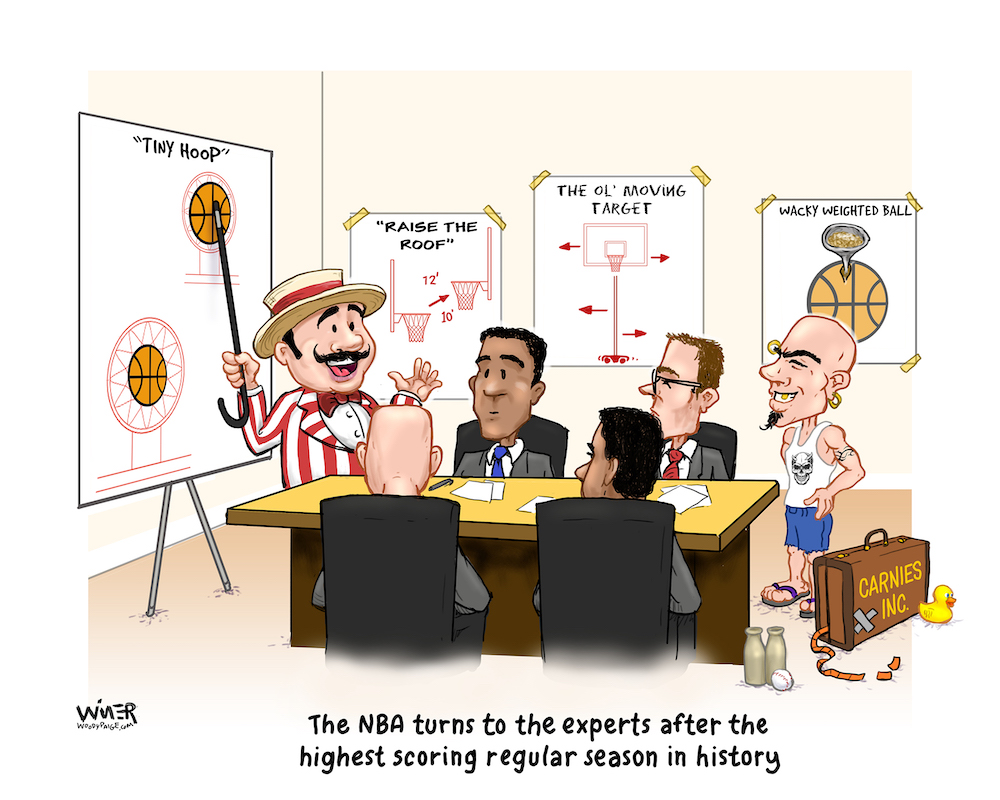Follow Mark on Twitter/X @markknudson41
The sport of College Football is a little conflicted.
I know…tell you something you don’t already know. Okay, it’s A LOT conflicted.
There are plenty of examples to be sure…but one that doesn’t get much attention is how the “regular” season and the “post” season intertwine, and how CFB continues to have “regular season” awards when they don’t really differentiate between regular and post season anymore.
Consider this:
In the pros of course (and since CFB is trending that direction, the comparisons are fair) once the “regular” season is over, a team has a record that goes into the books. For example, in 2022, the Kansas City Chiefs won the AFC West title with a record of 14-3. They went on to win three more games, including the Super Bowl, but that didn’t make them 17-3. It made them14-3, plus 3-0 in the post season and World Champs.

Patrick Mahomes’ stats from the regular season didn’t carry over into the postseason. They went into the history books at the end of the 14-3 regular season.
Awards like the MVP Award have always been “regular” season awards and not included the postseason.
College football used to do things in a similar fashion, but starting with the 2022 season, they decided to count players stats all the way through the bowl games they played in. So players from this century get to accumulate one or maybe even two extra games worth of statistics.
College teams had always counted their conference title games and bowl game records as a part of their overall mark at the end of the season. In college, the Chiefs final record would have been listed as 17-3.
In other words, in college football, there’s not a “regular” and a “post” anymore. It’s all one season.
Which begs the question, “In how many sports do they award their MVP award before the season is over?
College football does. And in a whole lotta cases – like this year – they get it wrong in large part because of that.
All CFB awards are given out in December…and the season doesn’t end until January. That includes the biggest of them all, the Heisman Trophy, awarded to the sports “Most Outstanding” player…regardless of whether or not he’s played in his most important game of the season or not.
And it’s almost always, “not.”
In most cases – in the ones where the voters get it right – the Most Outstanding Player is playing in a very important game that most times has National Championship implications.
Not this year. This year, the Heisman voting block got it wrong once again, handing the trophy to LSU’s Jayden Daniels, who’s team didn’t win their division, nor their conference title, won’t be playing in the College Football Playoff but will instead play a basically meaningless bowl game against an unranked opponent. More people will watch Deion Sanders signing day press conference.
Daniels played in three games this season that really really mattered. His team lost all three. But yes, he’s the “Most Outstanding.” Sure.
Fact of the matter is, a very biased group of south and eastern Heisman voters, who think everything that comes out of the Southeastern Conference is the best there could possibly be, bought in on Daniels impressive statistical numbers at the end of the season, and failed to note that a good portion of those impressive stats came against less than impressive competition. The LSU QB’s 50 total touchdowns (so far…remember his bowl game stats will count, too) included 11 complied against Georgia State (a 56-14 win) and Grambling State (a 72-10 win.) He also totaled almost 700 of his passing yards against those two lightweights.
Against Florida State, Mississippi and Alabama, Daniels had nine total TD’s and a pair of interceptions. And his team lost all three games.
Daniels is an outstanding player. He’s just clearly NOT the MOST outstanding player.
That would be Washington Huskies quarterback Michael Penix, Jr.
You would think that more voters would pay more attention to the performances that really matter…like those of Penix Jr, who led his team to an unbeaten season and into the playoff. Penix and the Huskies beat four ranked teams, including top 10 Oregon twice – but those games were played on the west coast so apparently a large number of voters couldn’t be bothered to watch.
This needs to be fixed.
Here’s a (non-original) thought: Since there is no “regular” and “post” season in college football now, why not wait until the season is completely over to decide who the most outstanding player is?
For that matter, how about waiting until the season is completely over to decide ALL the award winners? If we did that, then all voters could watch all the games that really really matter and then decide – based on performance under fire – who the Most Outstanding player really is?
If you’re going to count post season stats for players and post season games for teams, then shouldn’t those also be included in deciding who is award-worthy? You can’t call these “regular season only” awards if you only have a regular season.
More from The Woody Paige Sports Network:
- Woody Paige: That time I played blackjack with Michael Jordan in Monte Carlo
- Woody Paige: A tribute to the legendary John Madden
- Watching and Learning from the great Nolan Ryan
- Woody Paige: It’s time for the Monfort family to sell the Colorado Rockies
- Woody Paige: Denver could be hosting another championship parade (or two) next year





















Love This! Good job Mark Knudson, Heisman voter.